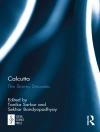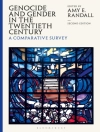How was heritage understood and implemented in European socialist states after World War II? By exploring national and regional specificities within the broader context of internationalization, this volume enriches the conceptual, methodological and empirical scope of heritage studies through a series of fascinating case studies. Its transnational approach highlights the socialist world’s diverse interpretations of heritage and the ways in which they have shaped the trajectories of present-day preservation practices.
قائمة المحتويات
List of Illustrations
Acknowledgements
Introduction: Heritage Under Socialism: Trajectories of Preserving the Tangible Past in Postwar Eastern and Central Europe
Corinne Geering and Paul Vickers
Part I: Transfers and Exchanges in Heritage Policies and Practices
Chapter 1. The Past Belongs to the Future: Heritage in Soviet Policymaking on Cultural Development
Corinne Geering
Chapter 2. International Experts – National Martyrdom – Socialist Heritage: The Contribution of the Polish People’s Republic to the Early UNESCO World Heritage Program
Julia Röttjer
Chapter 3. International Tourism and the Making of the National Heritage Canon in Late Soviet Ukraine, 1964–1991
Iryna Sklokina
Chapter 4. International Contacts and Cooperation in Heritage Preservation in Soviet Estonia, 1960–1990
Karin Hallas-Murula and Kaarel Truu
Part II: Canonizing and Contesting the Past: Heritage, Place and Belonging under Socialism
Chapter 5. Socialist Royalty? The Ambiguities of the Reconstruction of the Royal Residence in Budapest in the 1950s
Eszter Gantner
Chapter 6. Justifying Demolition, Questioning Value: Urban Typologies and the Concept of the “Historic Town” in 1960s Romania
Liliana Iuga
Chapter 7. Making Sense of Socialism through Heritage Preservation: Stories from Northwest Bohemia
Čeněk Pýcha
Chapter 8. Socialism and the Rise of Industrial Heritage: The Preservation of Industrial Monuments in the German Democratic Republic
Nele-Hendrikje Lehmann
Conclusion: Transnational Heritage Networks in Socialist Eastern and Central Europe
Corinne Geering
عن المؤلف
Paul Vickers is manager of the Department for Interdisciplinary and Multiscalar Area Studies (DIMAS) and the Leibniz Science Campus Europe and America at the University of Regensburg. His book, Making Popular Memory in Communist Poland, is forthcoming.












